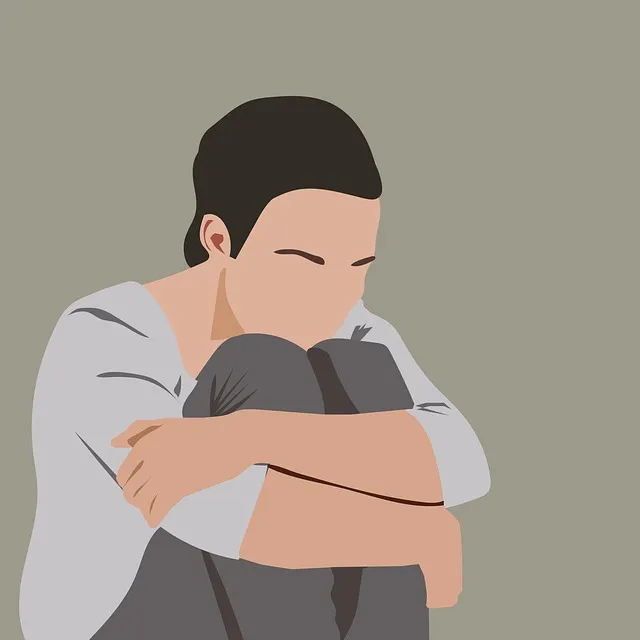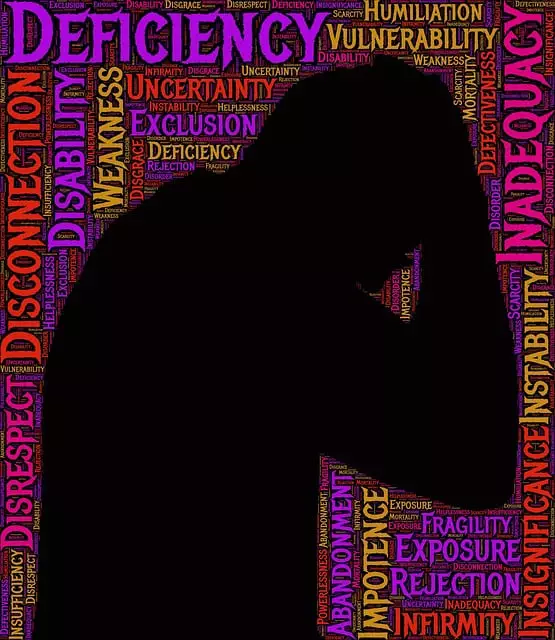The media's portrayal of mental health significantly influences public perception, often perpetuating stereotypes that lead to stigmatization. Organizations like Kaiser Permanente, with its Northglenn location, combat this by providing comprehensive mental health coverage and resources. They implement initiatives such as resilience-building exercises and Mental Wellness Journaling to create a supportive environment for open dialogue about mental health. By challenging negative media portrayals and integrating cultural sensitivity into their practices, Kaiser Permanente aims to revolutionize mental health discourse in Northglenn and beyond, ensuring sensitive and effective care for diverse populations.
In today’s media landscape, the representation of mental illness plays a pivotal role in shaping public perception and understanding. This article explores the profound impact of media portrayal on mental health attitudes, delving into the current state of mental illness depiction in popular media. We present Kaiser Permanente’s innovative approach to promoting positive mental health coverage, highlighting their commitment to accurate and empathetic representations. Through strategies focused on community engagement, including collaborations with Northglenn residents, we advocate for meaningful change in media narratives surrounding mental illness.
- Understanding the Impact of Media Portrayal on Mental Health Perception
- The Current State of Mental Illness Representation in Popular Media
- Kaiser Permanente's Approach to Promoting Positive Mental Health Coverage
- Strategies for Enhancing Accurate and Empathetic Media Depictions
- Community Engagement: Collaborating with Northglenn Residents for Change
Understanding the Impact of Media Portrayal on Mental Health Perception

The media plays a significant role in shaping public perception about mental health, with its representations having a profound impact on how society views and understands various psychological conditions. Unfortunately, stereotypes and misconceptions are often perpetuated through movies, television shows, and news coverage, leading to stigmatization and misinformed attitudes. This can have severe consequences for individuals struggling with mental illness, affecting their willingness to seek help and support. For instance, a lack of accurate representation in the media may cause people to question their experiences or feel isolated in their battles.
In light of this, initiatives aimed at enhancing Mental Health Awareness are crucial. Organizations like Kaiser Permanente, with its Northglenn location, offer mental health coverage and resources, recognizing the importance of accessible care. Moreover, promoting resilience-building exercises and Mental Wellness Journaling can empower individuals to take charge of their mental well-being. By challenging negative media portrayals, these efforts contribute to a more supportive environment where people feel comfortable discussing and addressing their mental health concerns openly.
The Current State of Mental Illness Representation in Popular Media

In recent years, there has been a growing awareness of mental health issues within popular media, yet the current state of representation remains largely problematic. Often, mental illness is depicted stereotypically or presented in a highly sensationalized manner, perpetuating harmful misconceptions and stigma. Many characters with mental health struggles are shown as either dangerous or completely broken, failing to capture the nuances and diversity of real-life experiences. This one-dimensional portrayal fails to reflect the vast array of conditions and can discourage individuals from seeking help.
The need for accurate and empathetic media representation is crucial, especially considering the impact it can have on public perception. Organizations like Kaiser Permanente recognize the importance of mental health coverage and initiatives that promote open dialogue. By incorporating Mind Over Matter Principles and providing access to Trauma Support Services, they aim to foster resilience and challenge the status quo. It is through these collaborative efforts that media can evolve, presenting more realistic and inspiring narratives about mental illness, ultimately contributing to a healthier and more supportive society in Northglenn and beyond.
Kaiser Permanente's Approach to Promoting Positive Mental Health Coverage

Kaiser Permanente, a leading healthcare organization, has taken significant steps to promote positive mental health coverage in Northglenn and beyond. Their comprehensive approach focuses on several key areas to ensure effective support for individuals dealing with mental illness. One of their notable initiatives is integrating cultural sensitivity into mental healthcare practice, recognizing the diverse needs and experiences of different communities.
This strategy involves training mental health professionals to deliver culturally competent care, tailoring interventions to respect individual and community values, beliefs, and practices. Additionally, Kaiser Permanente emphasizes the importance of risk management planning for mental health professionals, ensuring safe and supportive work environments. They also encourage self-care practices among their staff to prevent burnout and maintain optimal well-being, which is essential for providing quality care to patients navigating their own mental health journeys.
Strategies for Enhancing Accurate and Empathetic Media Depictions

Media has a significant impact on shaping societal perceptions, especially regarding mental health. To challenge stereotypes and promote understanding, creators should adopt strategies that enhance accurate and empathetic depictions. This involves consulting with experts, including mental health professionals from organizations like Kaiser Permanente mental health coverage Northglenn, to ensure authenticity in portrayal. By integrating real-life experiences and incorporating nuanced characters, media can showcase the complexity of mental illness, moving beyond simplistic tropes.
Additionally, stories should focus on the journey of coping skills development, self-esteem improvement, and inner strength development, providing a more balanced view. This approach not only humanizes individuals with mental health challenges but also offers hope and inspiration for both viewers and those directly affected. Encouraging open conversations about mental health in this manner can lead to increased empathy and reduced stigma.
Community Engagement: Collaborating with Northglenn Residents for Change

In an effort to challenge negative representations of mental illness and foster a more understanding community, Kaiser Permanente in Northglenn took an innovative approach by engaging directly with residents. Recognizing that accurate representation is key to promoting emotional well-being, they organized collaborative sessions with the local community. These discussions aimed to highlight the importance of mental health coverage under Kaiser Permanente’s plans in Northglenn and dispel misconceptions surrounding mental illness.
The process involved hosting a series of Stress Management Workshops and Emotional Well-being Promotion Techniques sessions, inviting residents to share their experiences and insights. Furthermore, healthcare provider cultural competency training was emphasized as a crucial element in ensuring sensitive and effective treatment for the diverse Northglenn population. Through these efforts, Kaiser Permanente sought to revolutionize mental health discourse and access to services within the community.
In addressing the critical issue of mental illness representation in media, the article has explored the profound impact of portrayals on public perception and the importance of accurate, empathetic depictions. By examining the current state of media’s treatment of mental health, highlighting Kaiser Permanente’s innovative approach to promoting positive mental health coverage, and presenting effective strategies for enhancement, this discussion underscores the potential for collaborative change. Engaging with Northglenn residents as a community fosters a movement toward more nuanced and compassionate media representations, ultimately contributing to better understanding and support for mental health in our society.






